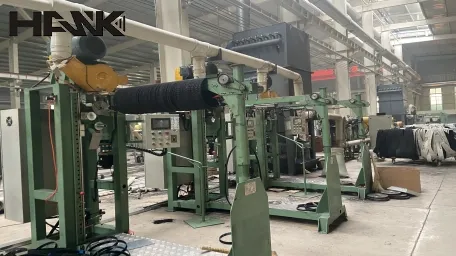- Arabic
- French
- Russian
- Spanish
- Portuguese
- Turkish
- Armenian
- English
- Albanian
- Amharic
- Azerbaijani
- Basque
- Belarusian
- Bengali
- Bosnian
- Bulgarian
- Catalan
- Cebuano
- Corsican
- Croatian
- Czech
- Danish
- Dutch
- Afrikaans
- Esperanto
- Estonian
- Finnish
- Frisian
- Galician
- Georgian
- German
- Greek
- Gujarati
- Haitian Creole
- hausa
- hawaiian
- Hebrew
- Hindi
- Miao
- Hungarian
- Icelandic
- igbo
- Indonesian
- irish
- Italian
- Japanese
- Javanese
- Kannada
- kazakh
- Khmer
- Rwandese
- Korean
- Kurdish
- Kyrgyz
- Lao
- Latin
- Latvian
- Lithuanian
- Luxembourgish
- Macedonian
- Malgashi
- Malay
- Malayalam
- Maltese
- Maori
- Marathi
- Mongolian
- Myanmar
- Nepali
- Norwegian
- Norwegian
- Occitan
- Pashto
- Persian
- Polish
- Punjabi
- Romanian
- Samoan
- Scottish Gaelic
- Serbian
- Sesotho
- Shona
- Sindhi
- Sinhala
- Slovak
- Slovenian
- Somali
- Sundanese
- Swahili
- Swedish
- Tagalog
- Tajik
- Tamil
- Tatar
- Telugu
- Thai
- Turkmen
- Ukrainian
- Urdu
- Uighur
- Uzbek
- Vietnamese
- Welsh
- Bantu
- Yiddish
- Yoruba
- Zulu
Sep . 06, 2024 10:20 Back to list
Transmission Rubber V Belt | Durable & High-Performance V Belts
Understanding Transmission Rubber V Belts
Transmission rubber V belts play a crucial role in the functioning of various machinery and equipment across multiple industries. Often seen as simple components, these belts serve the vital purpose of transferring power between rotating shafts, enabling machines to operate efficiently and effectively.
What is a Transmission Rubber V Belt?
A transmission rubber V belt is a type of flexible belt that is used predominantly in mechanical systems to transmit power. The V in its name refers to the belt's cross-section, which is designed in a trapezoidal shape. This design helps in improving the grip between the belt and the pulleys, thereby reducing slippage and enhancing power transfer efficiency.
Applications of V Belts
V belts are commonly used in automobiles, agricultural machinery, industrial equipment, and HVAC systems. In automotive applications, they connect the engine’s crankshaft to various accessories, such as alternators, water pumps, and air conditioning compressors. In industrial settings, they are often found in conveyor systems, pumps, and fans.
The versatility of V belts makes them suitable for both light-duty and heavy-duty applications, with various sizes and materials available to meet specific needs. Rubber V belts, for example, are particularly effective due to their flexibility, durability, and resistance to wear and tear.
Advantages of Using Rubber V Belts
1. Efficiency Rubber V belts are designed to provide a high level of power transmission efficiency. Their geometry ensures that they maintain optimal contact with the pulleys, minimizing energy loss due to slippage.
transmission rubber v belt

2. Durability Made from high-quality rubber compounds, these belts can withstand environmental extremes, heavy loads, and continuous use. This durability translates to lower maintenance costs and longer service life for machinery.
3. Shock Absorption The rubber material provides excellent shock absorption, helping to protect machinery from vibrations and sudden loads. This characteristic is crucial for maintaining the integrity of the equipment over time.
Maintenance Tips
To ensure the longevity and performance of transmission rubber V belts, regular maintenance is essential. Here are some tips
- Regular Inspection Check for signs of wear, such as cracks, fraying, or smooth patches, indicating that replacement may be needed.
- Proper Tension Ensure that the belts are installed with the correct tension. Too loose or too tight tension can lead to premature wear or failure.
- Alignment Misalignment of pulleys can cause uneven wear and loss of efficiency, so regular checks and adjustments are necessary.
In conclusion, transmission rubber V belts are indispensable components in many mechanical systems. Their efficiency, durability, and cost-effectiveness have made them a preferred choice for power transmission across various industries. By understanding their function and maintaining them properly, users can ensure that their equipment runs smoothly and efficiently, enhancing overall productivity.
-
Upgrade Power Steering Pump Belt for Smooth, Quiet Operation
NewsAug.27,2025
-
Precision Timing Belt & Chain: Engine Performance & Durability
NewsAug.26,2025
-
Precision Lathe Drive Belts: Durable & Reliable Performance
NewsAug.25,2025
-
84.5 Serpentine Belt: Durable & Precision Fit for Your Engine
NewsAug.24,2025
-
Premium Ribbed Drive Belts for Quiet Power Transmission
NewsAug.23,2025
-
High-Performance Vehicle Timing Belt for Engine Precision
NewsAug.22,2025

